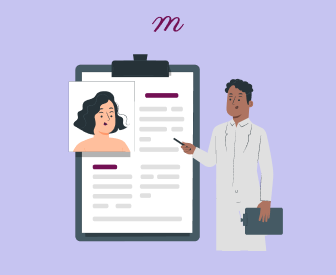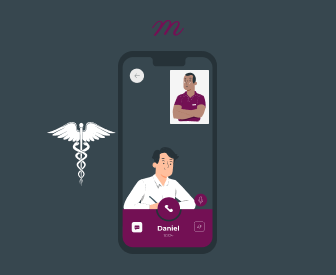Have your progress notes written for you automatically
Managing a practice involves various administrative tasks that can be time-consuming and complex, but Practice Management Software (PMS) can provide a streamlined solution for handling daily operations.
Practice Management Software (PMS) assists in managing daily operations within a clinical practice, including scheduling appointments, billing, managing client records, and ensuring compliance with healthcare regulations. PMS is designed to help therapists and their staff reduce administrative burdens, allowing more time and focus on client care.
What Does a Practice Management Software Do?
PMS is essential for efficiently running a therapy practice, offering a comprehensive suite of functionalities designed to streamline administrative tasks, enhance client management, and improve overall efficiency. Here are the key features and benefits of a robust PMS:
Appointment Scheduling
Simplified Booking. PMS allows clients to book online appointments, reducing the administrative burden on staff. Clients can view available slots and choose the session time that suits them best.
Appointment Management. Clients can easily reschedule or cancel appointments, automatically updating the therapist's calendar.
Flexible Scheduling Options. PMS allows for flexible scheduling, accommodating different session lengths and types (e.g., initial intake appointments, individual therapy, group therapy, and family sessions).
Automated Reminders. To reduce no-shows, PMS sends automated reminders via email or SMS to clients, reminding them of their upcoming appointments. This reduces missed appointments and ensures that therapists' schedules remain optimized.
Billing and Invoicing
Invoice Generation.The software automatically generates session invoices, reducing the time and effort needed to manage billing.
Payment Processing. Payments are processed directly through credit cards, bank transfers, or other methods, simplifying the process for both clients and therapists.
Insurance Claims. For clients with insurance coverage, the software handles the submission of insurance claims, tracks their status, and manages any required follow-up – ensuring therapists get paid promptly and correctly.
Client Records Management
Detailed Client Profiles. Comprehensive client profiles, including personal information, contact details, and emergency contacts, ensure all essential information is readily available.
Treatment History. Past sessions, treatments, and progress notes are recorded to ensure consistent and informed care.
Session Notes. Therapists can document session notes directly into the system, making it easy to track client progress and plan future sessions. The notes are stored securely and can be accessed quickly.
Reporting and Analytics
Practice Performance. Detailed reports, such as the number of sessions conducted, revenue generated, and client retention rates, help therapists understand their practice's overall performance.
Client Progress. Reports on client progress can be generated, helping therapists evaluate the effectiveness of their treatment plans and make necessary adjustments.
Financial Health. Financial analytics, including income and expense tracking, clearly depict the practice's financial health. This helps in making informed business decisions and planning for growth.
Compliance and Security
Healthcare Regulations. PMS ensures the practice complies with healthcare regulations such as HIPAA (Health Insurance Portability and Accountability Act). This includes secure handling and storage of client information.
Data Security. Robust security measures, such as encryption and secure access controls, protect sensitive client data from unauthorized access and breaches.
Audit Trails. Detailed audit trails of all system activities allow for tracking any changes made to client records to ensure accountability.
By incorporating these features, PMS improves a practice's administrative efficiency and enhances the overall client experience. The software allows therapists to focus more on providing quality care and less on managing day-to-day operations.
The Difference Between EHR and PMS
Electronic Health Records and Practice Management Software (PMS) are both essential tools in modern mental health care. While the terms are sometimes used interchangeably, they serve distinct purposes and cater to different aspects of a practice. Understanding these differences is important for selecting the right tools to meet the practice’s specific needs.
EHR
Electronic Health Records (EHR) are designed to manage the clinical aspects of client care. They provide a digital version of a client’s paper chart and contain comprehensive mental health information. Key features include:
Detailed Histories. EHRs thoroughly record a client’s mental health history, which is crucial for accurate diagnosis and treatment planning.
Treatment Plans. EHRs allow clinicians to create and manage detailed treatment plans tailored to individual clients.
Progress Notes. Clinicians must document client encounters (sessions), noting symptoms, diagnoses, and treatment outcomes. These notes help track the client’s progress over time.
Clinical Data. EHRs store clinical data, such as psychological assessments, which are essential for informed decision-making and continuity of care.
Interoperability. EHRs facilitate the exchange of information between different providers, ensuring that client information is accessible across various settings.
Practice Management Software
Practice Management Software (PMS) focuses on the administrative and operational aspects of running a mental health practice. Its primary goal is to streamline the day-to-day management tasks to improve efficiency and productivity. Key features include:
Scheduling. PMS simplifies the process of booking, rescheduling, and canceling appointments and often includes features like automated reminders to reduce no-shows – ensuring efficient use of time.
Billing and Invoicing. PMS manages a practice's financial operations, including generating invoices, processing payments, and handling insurance claims, ensuring smooth and accurate billing processes.
Operational Tasks. PMS helps with various administrative tasks, such as managing client intake forms, consent documents, and other necessary paperwork – reducing the administrative burden on staff.
Client Records Management. PMS maintains essential client information, including contact details, appointment history, and basic treatment records.
Reporting and Analytics. PMS provides insights into the practice’s performance, including financial health, appointment trends, and client demographics. These analytics help therapists make informed business decisions.
Integration of EHR and PMS
Some platforms integrate EHR and PMS functionalities, offering a comprehensive solution covering clinical and administrative needs. Integrated systems provide several benefits:
Seamless Workflow. Clinicians and administrative staff can access all necessary information from a single platform, improving workflow efficiency and reducing the need for duplicate data entry.
Improved Coordination. Integration facilitates better coordination between clinical care and administrative tasks, ensuring that all aspects of client management are aligned.
Enhanced Data Accuracy. A single source reduces the chances of data errors, ensuring more accurate records and billing information.
Selecting the Right Platform
When selecting the right tool for your practice, therapists must consider the specific needs of their practice. Consider the following:
Clinical Focus. An EHR system may be the best option if the primary concern is managing detailed clinical information and improving client care.
Administrative Efficiency. A PMS will be more beneficial if the goal is to streamline administrative tasks and improve practice efficiency.
Integrated Needs. An integrated EHR-PMS system provides the most comprehensive solution for practices requiring clinical and administrative functionalities.
By understanding the core differences between EHR and PMS, therapists can make an informed decision that best supports the operational and clinical needs of the mental health practice.
Practice Management for Mental Health Therapists
For mental health therapists, managing a practice involves providing high-quality care and handling various administrative and operational tasks. PMS can be particularly beneficial, as it simplifies the management of therapy sessions, client communication, and administrative duties. Here are some key features of PMS specifically designed for mental health practices:
Secure Client Communication.
Confidentiality is paramount in mental health care, and PMS offers tools to facilitate secure communication between therapists and clients.
PMS includes secure messaging platforms that comply with healthcare regulations such as HIPAA, ensuring that sensitive information shared between therapists and clients remains confidential.
Teletherapy Options. Many PMS platforms integrate teletherapy functionalities, allowing therapists to conduct sessions via video conferencing. These platforms are designed to provide a secure and private environment for online therapy, ensuring that client information is protected.
Appointment Reminders and Follow-ups. Clients can securely receive automated reminders for upcoming appointments and follow-up messages post-session, reducing no-shows and enhancing engagement.
Customizable Treatment Plans.
PMS provides tools to create and manage personalized treatment plans for each client.
Individualized Care Plans. Therapists can develop detailed treatment plans tailored to each client’s specific needs. These plans can include therapeutic goals, objectives, intervention strategies, and progress milestones.
Tracking Progress. Therapists can document and track client progress over time, allowing for the adjustment of treatment plans as needed to ensure therapy goals are being met.
Intervention Tools.The software often includes a library of intervention tools and techniques therapists can incorporate into their treatment plans. This ensures that therapists can access various resources to support their clients.
Session Notes and Documentation.
Efficient documentation is vital for maintaining accurate client records and ensuring continuity of care.
Templates for Documentation. PMS provides customizable templates for session notes, making it easier for therapists to create consistent and comprehensive documentation. Templates may include fields for session objectives, client progress, and future plans.
Progress Tracking. Detailed documentation tools enable therapists to track client progress over multiple sessions. This information can be used to assess the effectiveness of interventions and make necessary adjustments.
Secure Storage. All documentation is stored securely within the PMS, protecting client records from unauthorized access. Therapists can access these records quickly, facilitating seamless care.
PMS Examples
Several practice management systems cater specifically to mental health therapists, offering a variety of features tailored to meet the unique needs of mental health practices. These systems help streamline administrative tasks, improve client management, and enhance overall practice efficiency. Here are some popular examples:
TheraNest
offers a suite of scheduling, billing, and client records management tools.
focuses on mental health practices and includes features like progress notes, treatment plans, and a secure client portal.
provides telehealth functionalities, allowing therapists to conduct online sessions securely.
handles all billing processes, including insurance claims, invoicing, and payment processing.
provides an all-in-one, comprehensive solution with features like telehealth, a client portal, and customizable documentation templates.
offers secure messaging and automated appointment reminders to enhance client communication.
includes a mobile app that allows therapists to manage their practice on the go.
combines practice management and EHR functionalities, designed specifically for mental health professionals.
offers progress notes, treatment plans, and other clinical documentation templates.
efficiently handles scheduling, billing, and insurance claims.
Kareo
offers a cloud-based practice management system that includes scheduling, billing, and client records management.
integrates with EHR systems to provide a seamless experience for clinical documentation and administrative tasks.
includes tools for client engagement, such as appointment reminders and a patient portal.
CounSol.com
provides customizable features tailored to the needs of mental health professionals, including scheduling, billing, and secure messaging.
offers a secure client portal for managing appointments, payments, and communication.
includes templates for progress notes and other clinical documentation.
Practice Fusion
offers a user-friendly interface with scheduling, billing, and client records management.
includes EHR functionalities, allowing for seamless integration of clinical and administrative tasks.
provides telehealth options for conducting online therapy sessions.
Therasoft
offers a comprehensive practice management system with scheduling, billing, documentation, and telehealth.
includes a client portal for secure communication and appointment management.
offers marketing tools to help therapists grow their practice.
Luminello
provides a streamlined workflow with scheduling, billing, and client records management features.
integrates EHR functionalities, allowing for comprehensive clinical documentation.
includes secure messaging options to facilitate confidential communication between therapists and clients.
ICANotes
specifically designed for behavioral health practices, offering scheduling, billing, and EHR integration features.
provides detailed templates for clinical documentation, including progress notes and treatment plans.
includes telehealth functionalities for conducting secure online sessions.
These practice management systems offer a range of features designed to meet the unique needs of mental health therapists. They help streamline administrative tasks, improve client management, and enhance overall practice efficiency. By selecting the right PMS, therapists can focus more on providing high-quality care and less on managing day-to-day operations.
What is the Most Popular PMS?
Determining the most popular practice management software can be influenced by factors such as practice size, specific needs, and budget. However, several platforms are widely recognized and frequently recommended due to their user-friendly interfaces, robust features, and exceptional customer support. Here are some of the most popular options:
SimplePractice
SimplePractice is highly regarded in the mental health field for its comprehensive and intuitive platform. It offers an all-in-one solution that includes scheduling, billing, telehealth, and documentation features.
Integrated telehealth platform for conducting secure online therapy sessions.
Provides a user-friendly client portal for scheduling, payments, and secure messaging.
Offers customizable templates for progress notes, treatment plans, and other documentation.
Allows therapists to manage their practice on the go with a mobile app.
Simplifies the insurance claim process with electronic claim submissions and tracking.
Known for its user-friendly interface, making it easy for therapists to adopt and use.
Offers a wide range of features that cater to the specific needs of mental health professionals.
Provides excellent customer support and training resources to help users get the most out of the software.
TheraNest
TheraNest offers a suite of tools designed to streamline practice management. It focuses on providing features that support both clinical and administrative tasks.
Comprehensive scheduling tools and billing functionalities, including insurance claim management.
Securely manages client records, including treatment history and session notes.
Provides telehealth capabilities for conducting virtual therapy sessions.
Includes customizable templates for progress notes and other clinical documentation.
Offers detailed reporting and analytics to help therapists track practice performance and client progress.
Specifically designed for mental health practices, it’s highly relevant and useful for therapists.
Competitive pricing options that cater to practices of various sizes and budgets.
High levels of user satisfaction due to its robust features and ease of use.
TherapyNotes
TherapyNotes is a widely recommended platform that combines practice management and EHR functionalities. It’s designed specifically for mental health professionals and offers comprehensive features.
Combines electronic health records with practice management tools.
Provides progress notes, treatment plans, and other clinical documentation templates.
Efficiently handles scheduling, billing, and insurance claims.
Includes secure messaging options for confidential communication with clients.
Offers telehealth capabilities for virtual therapy sessions.
Strong emphasis on clinical documentation and EHR integration, making it ideal for detailed client care.
Wide range of features that cover both administrative and clinical needs.
Known for its reliability and excellent customer support, ensuring a smooth user experience.
The Most Popular Choice?
While all three platforms—SimplePractice, TheraNest, and TherapyNotes—are highly popular and widely used in the mental health field, SimplePractice stands out as the most popular choice among mental health professionals because of its user-friendly interface, comprehensive features, and strong customer support. The platform’s ease of use and versatility make it a preferred choice for many therapists looking to streamline their practice management and enhance client care.
Conclusion
Selecting the right PMS depends on the practice’s specific needs, including size, budget, and the specific needed features. SimplePractice, TheraNest, and TherapyNotes are all excellent options that provide tools to help mental health professionals manage their practices efficiently. PMS is an invaluable tool for therapists. It offers a comprehensive solution to streamline administrative tasks and enhance practice efficiency. By understanding the distinct functionalities of PMS and EHR and choosing the right system, therapists can focus more on providing quality client care.










